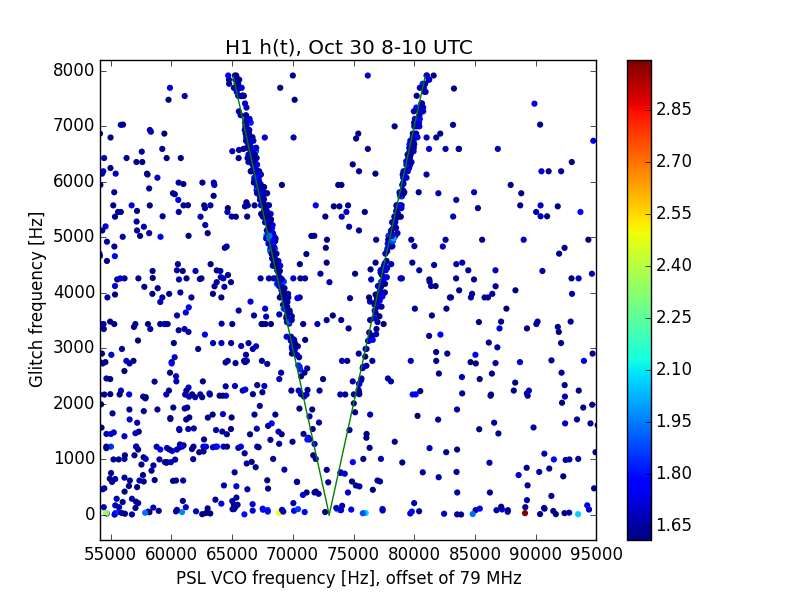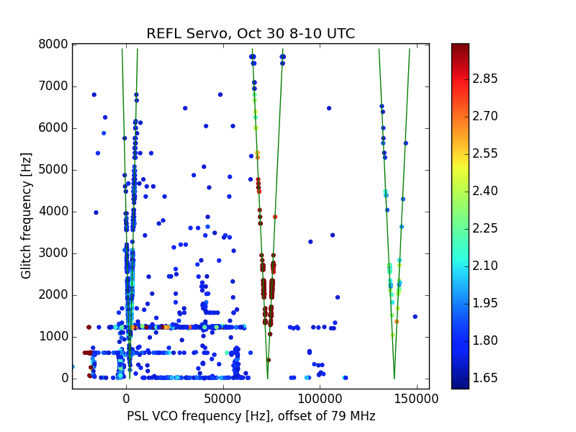TITLE: "10/28 [DAY Shift]: 15:00-23:00UTC (08:00-16:00 PDT), all times posted in UTC"
STATE Of H1: Lock Acquisition
SUPPORT: Jeff K., Kiwamu, Jeff B.
SHIFT SUMMARY: Not much happened during the day. The ifo stayed locked until toward the very end of the shift. Difficulty recovering from the lockloss due to many optics became misaligned. I restarted GraceDB script once today.
INCOMING OPERATOR: Patrick
ACTIVITY LOG:
15:25 Fil to Mid Y pick up EOM stuff
15:57 Fil back
19:04 Out of Observation to run DARM and Pcal open loop gain transfer function
20:13 Kyle to HAM3 after TF done. Cheryl to HAM12 area.
----------------Jeff Bartlett covering for me from 21:00-22:00----------------
21:33 Lockloss.
There're few other things I couldn't make sense off his notes. Will post more later when I do!
-------------------------------------------------------------------------------------------
22:00 I came back to find the ifo have lost lock. Jeff reported ifo was locking in green but couldn't move on because the power wasn't high enough. The ALSX beam spot have moved significantly. Almost every optics I looked at moved by significant amount (including ITMs and ETMs but not TMS) and I wasn't sure where I should start touching. Everyone was out for the 3 O'clock meeting. I didn't notice that IMC was locking at the wrong mode.
23:00 Patrick took over.
Ps. I might have missed a couple of activities (outside the LVEA, low impact) during the chaos. Sorry about that.














